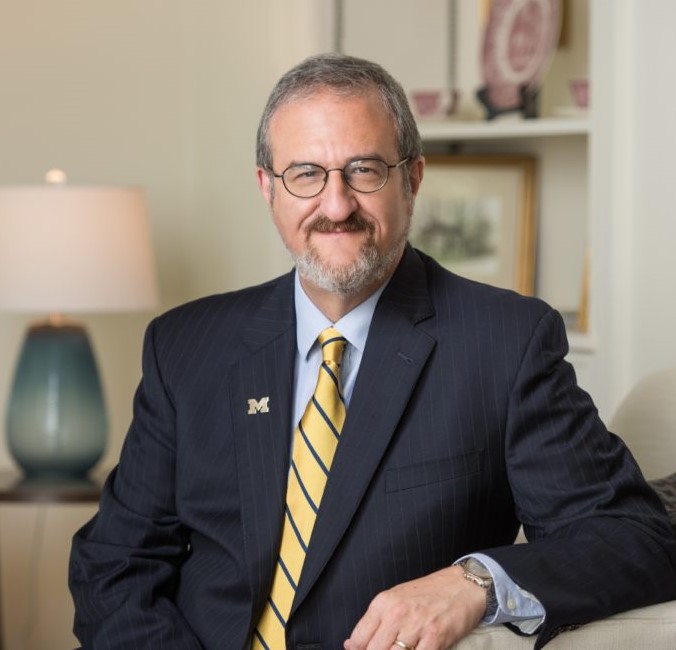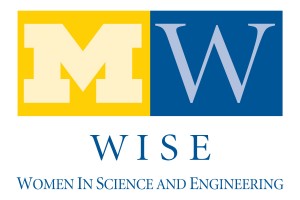The Sixth Annual High School GIDAS Research Conference
This year’s conference is on May 18, 2019, and the theme is Genes and Pancreatic Cancer.
Keynote Speaker
Mark S. Schlissel, M.D., Ph.D.
President of the University of Michigan
Date: May 18, 2019 (Saturday), 12:00 – 5:30 pm
Location: Room 1230 Undergraduate Science Building (USB), University of Michigan (204 Washtenaw Ave., Ann Arbor, MI 48109)
Open to the public, including middle school students and adults.
You will receive email confirmation of the registration and payment.
Do you like science and computers? Are you interested in discovering relationships between genes and diseases?
Come to the High School Students’ Research Conference and find out what other students are investigating.
This conference is designed to provide young students experience in a research conference setting to promote learning and interest in science and research.
There will be interesting hands-on workshops and presentations of research done by high schoolers (including you!).
2019 Conference Agenda
| 11:30 am | Registration (poster setup) |
| 12:00 pm | Greetings from miRcore President | Inhan Lee, Ph.D. |
| 12:05 pm |
Keynote Address: Precision Health: How Scientific Discovery Improves the Prevention, Diagnosis and Treatment of DiseaseMark S. Schlissel, M.D., Ph.D.President of the University of Michigan |
| 12:35 pm |
Student Oral Presentation I Session Chair: Jules Lin, MD, FACS., Mark B. Orringer Professor, Surgical Director, Lung Transplant, University of Michigan |
| 1:15 pm | Break (poster setup, refreshments) |
| 1:30 pm | Poster Session |
| 2:30 pm |
Student Oral Presentation II Session Chair: Kiran Hari Lagisetty, MD, Assistant Professor, Thoracic Surgery, Surgery, University of Michigan |
| 3:10 pm | Break (Refreshments) |
| 3:25 pm |
Workshops
|
| 4:15 pm | 2018-19 GIDAS Activity Reports and Conference Awards |
| 5:15 pm | Closing |
If you present, you will
– Meet professional scientists and connect with peers who share your interest in science
– Grow in professionalism through presentation, writing, and reading for science
– Develop public speaking skills in a larger group setting
– Compete for science presentation awards
Your 2019 conference presentation should address some genetic aspect of pancreatic cancer.
Oral Presentation
We select 10 oral presentations. If you want to compete to give an oral presentation, please submit your abstract by April 27, 2019. Professional scientists will score the abstracts and we will announce the oral presenters on May 4, 2019.
Certificate will be given to the best three presenters/groups by their scores.
2019 oral presenters
The Downregulation of PRSS Family Genes in PDAC Tissue Suggests that Influenza A could be used in Virotherapy of Pancreatic Cancer | Bhuvna Murthy, 12th Grade, Huron HS, Ann Arbor, MI, US
Upregulation of Glycolytic Genes in Pancreatic Cancer | Eleanor Lin, 11th Grade, Huron HS, Ann Arbor, MI, US
Salivary Analysis for Upregulated Pancreatic Cancer Biomarkers | Rhea Cong, 11th, Huron HS; Jocelyn Zhang, 11th, Huron HS, Ann Arbor, MI, US
Pancreatic Cancer and the Upregulation of Genes in the ECM | Ava Barbano, 9th Grade, San Dieguito HS, San Diego, CA; Isha Soni 11th Grade, Sage Creek HS, San Diego, CA, US
The Role of the ITG and LAM Gene Families in the Onset and Development of Pancreatic Cancer by means of the ECM Receptor Pathway | Disha Iyengar, 10th Grade, Northville; Lila Reddy, International Academy Central; Edwin Zishiri, Greenhills HS, MI, US
Upregulation of Collagen in the Extracellular Matrix Reception-Interaction Pathway in Pancreatic Ductal Adenocarcinoma | Kyler Hwa, 10th Grade, Stoney Creek HS; Azeem Saifee, West Bloomfield HS; Mahima Srikanth, Detroit Country Day, MI, US
The Role of Focal Adhesion in Pancreatic Adenocarcinoma Metastasis |Rachel Boeke, 10th, Glenbrook North HS, Northbrook, IL; Irene Calderon, 9th, Summit Country Day, Cincinnati, OH; Siya Goel, 9th, West Lafayette Jr/Sr HS, West Lafayette, IN; Lauren Lakin, 9th, Canyon Crest Academy, San Diego, CA, US
Role of ITGA3, ITGB4, LAMA3, LAMB3, and LAMC2 in the Progression of Pancreatic Cancer | Zaina Al Habash, 10th, Washtenaw Technical Middle College, Olivia Milosevich, Mercy HS, Farmington Hills, MI; Mori Ono, Community HS, Ann Arbor, MI; Sophia Tesic, Mercy HS, Farmington Hills, MI, US
Gene Expression in ECM-Receptor Interaction and Cancer Pathways in PDAC Tumor vs. Non-Tumor Tissues | Maria Sicilia, Rachel Jeong, Sahithy Oruganti, Swathi Kambhatla, Doris Nie, Detroit Country Day, Oakland, MI, US
Upregulation of the S100 Protein Family in Pancreatic Cancer | Shruthi Chakravarthy, 10th, Pioneer HS; Nishant Domala, 10th, Skyline HS, Ann Arbor, MI, US
Overexpression of Respiratory Chain Complex IV Assembly Genes Indicates Decreased Survival in Pancreatic Ductal Adenocarcinoma | Jibiana Jakpor, 9th, Woodcrest Christian HS, Riverside, CA; Carson Chiavatti, 9th, San Dieguito HS, San Diego, CA, US
Target Therapy for PDAC Patients with Upregulated ITG Genes to Possibly Increase the Survivability of PDAC | Praveena Mohanraj, 9th, Plymouth HS; Annabel Yang, 10th, Northville HS; Ashna Mulchandani, Huron HS; Meghana Lanka, Novi HS; Shameena Shahzad, Washtenaw International High School, MI, US
The Fanconi Anemia Pathway in Early Pancreatic Cancer Detection | Eleanor Lin, 11th; Nikhita Datar, 11th;Bhuvna Murthy, 12th, Huron HS, Ann Arbor, MI, US
The Role of Collagen Formation in Diagnosing Pancreatic Ductal Adenocarcinoma | Hanan Mohammed1, 11th, Canton Preparatory High School, Canton; Alyssa Fong, 11th, East Meadow HS, East Meadow, NY; Adithi Voleti, 11th , Farmington HS, Farmington Hills, MI, US
Poster Presentation
All presenters (including oral presenters) should exhibit their posters and prepare a three-minute presentation to pitch their research to conference attendees.
We invite genetic and cancer research professionals from the University of Michigan and assign them to judge poster presentations. The professionals (judges) will engage each poster presenter in discussion about their research and give their feedback to presenters.
Certificates will be given to the best three poster presenters/groups as graded by the judges; the three most popular posters as selected by conference attendees will also receive certificates.
Publish Proceedings
If you want to publish your abstract in the conference proceedings, please submit your research abstract and your “About Me” with your picture in Word format by May 12, 2019 (refer to “Abstract Submission”).
Even if you miss the deadline to publish, you can still bring in your research poster and compete for the poster presentation award. However, you should submit your poster abstract content to us by May 16, 2019 to be assigned to a judge.
Abstract Submission
Abstract Guidelines can be found here.
File submission: email attach the abstract as a Word file to abstract at mircore dot org.
Poster
Poster Guidelines:
Size: 48′ (width) X 36′ (height).
Check in with your poster and set up by 12:45 pm.
Below is a link to a couple of poster examples that have been used for previous conferences.
Sponsors:
Past Year Conferences
Here you can find information about the conferences from past years.


